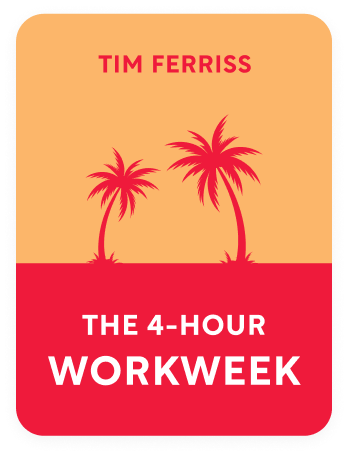

This article is an excerpt from the Shortform book guide to "The 4-Hour Workweek" by Tim Ferriss. Shortform has the world's best summaries and analyses of books you should be reading.
Like this article? Sign up for a free trial here .
What is a mini retirement? How can you work toward and plan for a mini retirement?
A mini retirement is when you take an extended period of time off from work. In The 4-Hour Workweek, Tim Ferriss explains that this is the best way to live your dreams.
Read more about mini retirements and how to plan for them.
Mini Retirements
The goal of the DEAL process is to gain ourselves enough time to do the things we’ve come up with in our dreamlines. The best way to live out a dream is to take a mini retirement. A mini retirement is a months-long hiatus from work during which you live one of your dreams. Unlike traditional retirement, you can have many periods of mini retirement throughout your life.
The author spends most of his mini retirements traveling, so from now on, the term “mini retirement” will specifically refer to relocating to a new place for several months.
A mini retirement is a better way to travel than a vacation or sabbatical because when you’re mini-retired you have enough time to truly experience a place. Vacations are so short they’re exhausting—to see a lot, you have to binge it. Sabbaticals are longer, but they only happen once or twice. Another advantage of mini retirements is that they can be more affordable than vacation. Hotels and hostels are a lot more expensive than renting an apartment, so spending a month living somewhere else may not be any more expensive than a week-long vacation.
(Shortform note: The author both recommends that you disengage from work and gives advice on ways to work during your mini retirement. The implication is that you can choose whether or not to work during your mini retirement.)
How to Plan a Mini Retirement
There are four steps to planning a mini retirement. You may not have to do all the steps for each mini retirement. Here are the steps:
- Assess your finances. Write a list of your assets and how much they’re worth, incoming cash, and expenses. What can you get rid of? Consider how much you use it or if it creates more stress than it’s worth.
- Fear-set. Fear-set one of your dreamlines or a one-year mini retirement in Europe.
- Choose where you want to go on your first mini retirement. You can stay in your own country, but it’s easier to get out of the working mindset somewhere with a different culture. To find a place:
- Pick a place to start and then wander until you find somewhere you like.
- Choose a place you know you like, and do some shorts trips in the area.
- The author recommends Argentina, Thailand, and Berlin if you’re looking for a low cost of living and somewhere easy to start.
- When appropriate, start your mini retirement itinerary.
Mini Retirement Itinerary
This itinerary covers the time from three months before you leave until a week after you’ve arrived:
- Three months before:
- Apply the 80/20 rule to your belongings.
- Look into travel medical insurance.
- Figure out what to do with your current home, whether that’s ending a lease, renting/swapping, or selling.
- Two months before:
- Set up autopayments for your bills with credit or debit cards.
- Get credit cards for all your checking accounts, set the cash advances to $0, and leave them at home. They’re to protect against accidental overdraft.
- Give your accountant or a trusted family member power of attorney so they can sign documents for you while you’re away.
- One month before:
- Set up mail forwarding to someone you’ll pay to email you descriptions of your mail.
- Get all vaccinations.
- Trial remote desktop software to make sure it works.
- So that you continue to get paid by resellers and distributors, if your muse’s fulfillment house accepts checks, switch to direct deposit, get the fulfillment house to handle them, or get people to use Paypal or send their checks to your power of attorney person.
- Two weeks before:
- Make copies of your important documents.
- Change your phone plan to something cheap and change the voicemail message to something that tells people you’re away, won’t be checking your voicemail, and gives your email address.
- Set up email responders to tell people how often you’ll be responding.
- If you’re an employee, set up a way for your boss to contact you.
- Find accommodation. The author recommends you start with a hostel and choose an apartment after you get there, so you can check out neighborhoods and talk to locals first.
- Optional: get foreign medical evacuation insurance.
- One week before:
- Decide a batch schedule for your routine tasks. This helps you maintain discipline to do them once you’re traveling.
- Save digital copies of important documents to a USB drive.
- Pack, store your things, and move in with a family member or friend until you go.
- Two days before:
- Store your car safely.
- Cancel auto insurance.
- First morning and afternoon after arrival:
- Tour the city on a hop-on-hop-off bus and bicycle to check out apartment neighborhoods.
- Don’t buy souvenirs until the last two weeks of your stay.
- First evening after arrival:
- Get an unlocked cell with a prepayable SIM card.
- Set up apartment showings.
- Days 2 and 3 after arrival:
- Sign a one-month lease on an apartment. Start with a month in case you don’t like the place.
- Move-in day:
- Buy local health insurance.
- A week after move-in day:
- Get rid of anything you brought that you don’t need.

———End of Preview———
Like what you just read? Read the rest of the world's best book summary and analysis of Tim Ferriss's "The 4-Hour Workweek" at Shortform .
Here's what you'll find in our full The 4-Hour Workweek summary :
- The 4-step process to live a "retired" lifestyle now
- Find out if you're wasting the best years of your life working a 9-5
- How to create a business that makes you money without sucking up your time






